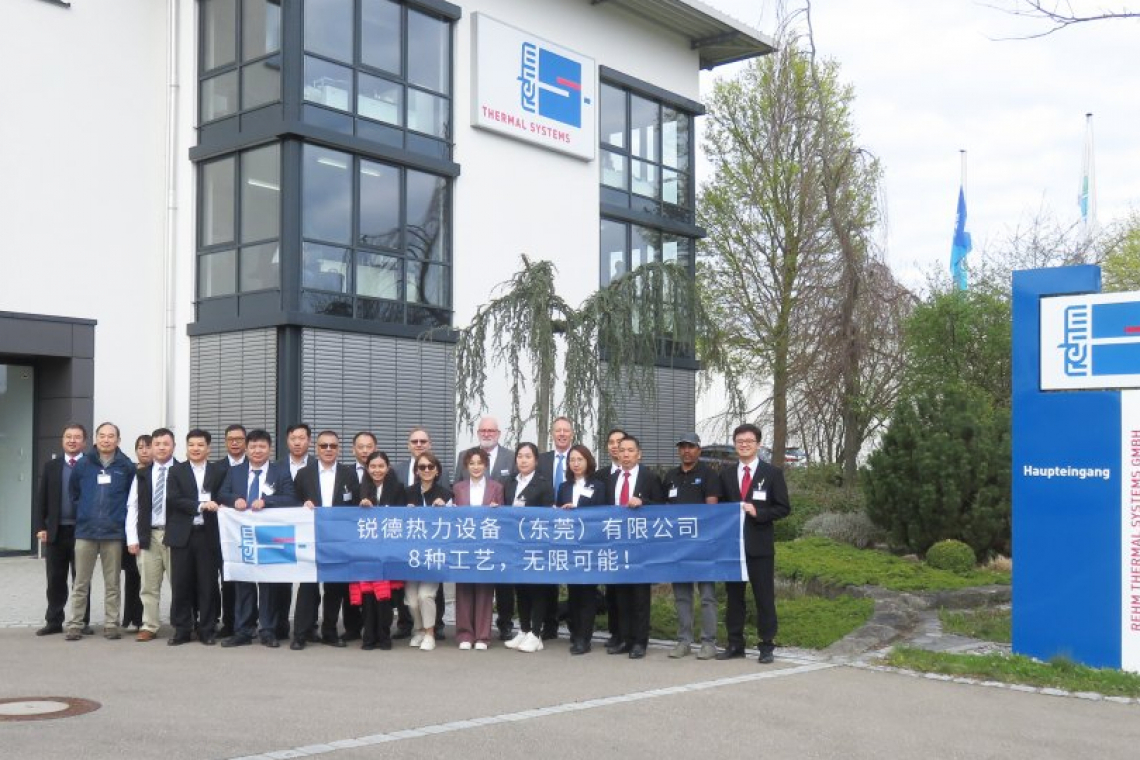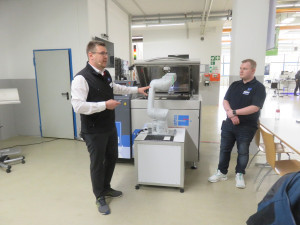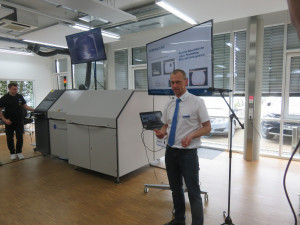To mark its 33rd anniversary, Rehm Thermal Systems GmbH invited customers, partners, employees and press representatives from all over the world to its Technology Days at the company headquarters in Blaubeuren. Hundreds attended and were more than impressed by the event.
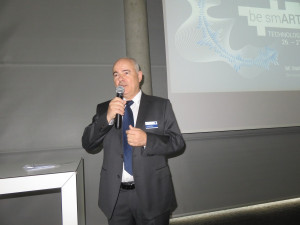 Johannes Rehm, company founder and Managing Director of RehmUnderthe motto 'Be smart - take part', current topics ranging from sustainable electronics production, connectivity and networking to smart automation and artificial intelligence were addressed in presentations, workshops, live demonstrations and the exhibition area. The whole event was rounded off with a large festive evening.
Johannes Rehm, company founder and Managing Director of RehmUnderthe motto 'Be smart - take part', current topics ranging from sustainable electronics production, connectivity and networking to smart automation and artificial intelligence were addressed in presentations, workshops, live demonstrations and the exhibition area. The whole event was rounded off with a large festive evening.
Technology Days have always served as a platform for Rehm to showcase and discuss advances and developments in the electronics industry. This time too, the event was all about knowledge transfer and the exchange of experience, providing new insights for everyone.
The event was opened by Johannes Rehm, the company's founder and Managing Director. In his welcoming address, he noted that the 33rd anniversary was being celebrated because the 30th anniversary could not be celebrated at that time due to the coronavirus pandemic. Johannes Rehm emphasized that it is important for his company to master not only the mechanical engineering but also the processes, and that 'Be smart' applies to everything. Sales Manager Michael Hanke then took over the moderation. In a total of ten specialist presentations, which were followed by over 300 participants, in-house and invited experts shed light on current challenges for companies.
In tune with the times - specialist presentations on both days
Dr. Frank-Peter-Schiefelbein, Siemens Technology Berlin, used selected examples to review more than 33 years of electronics production from manual assembly to fully automated module production. He concluded with an outlook on the challenges of the future, which primarily involve sustainability. The IPC recently established the Sustainability for Electronics Leadership Council for this purpose. It plans to present recommendations for a strategic plan on sustainability in August 2023.
Dr. Paul Wild, Rehm Thermal Systems, spoke about innovative solutions for sustainable electronics production based on theCO2 targets. He presented which features or units in the systems developed by Rehm for convection soldering, condensation soldering and coating contribute to achieving these goals. He then listed other activities with which Rehm is reducing itsCO2 footprint.
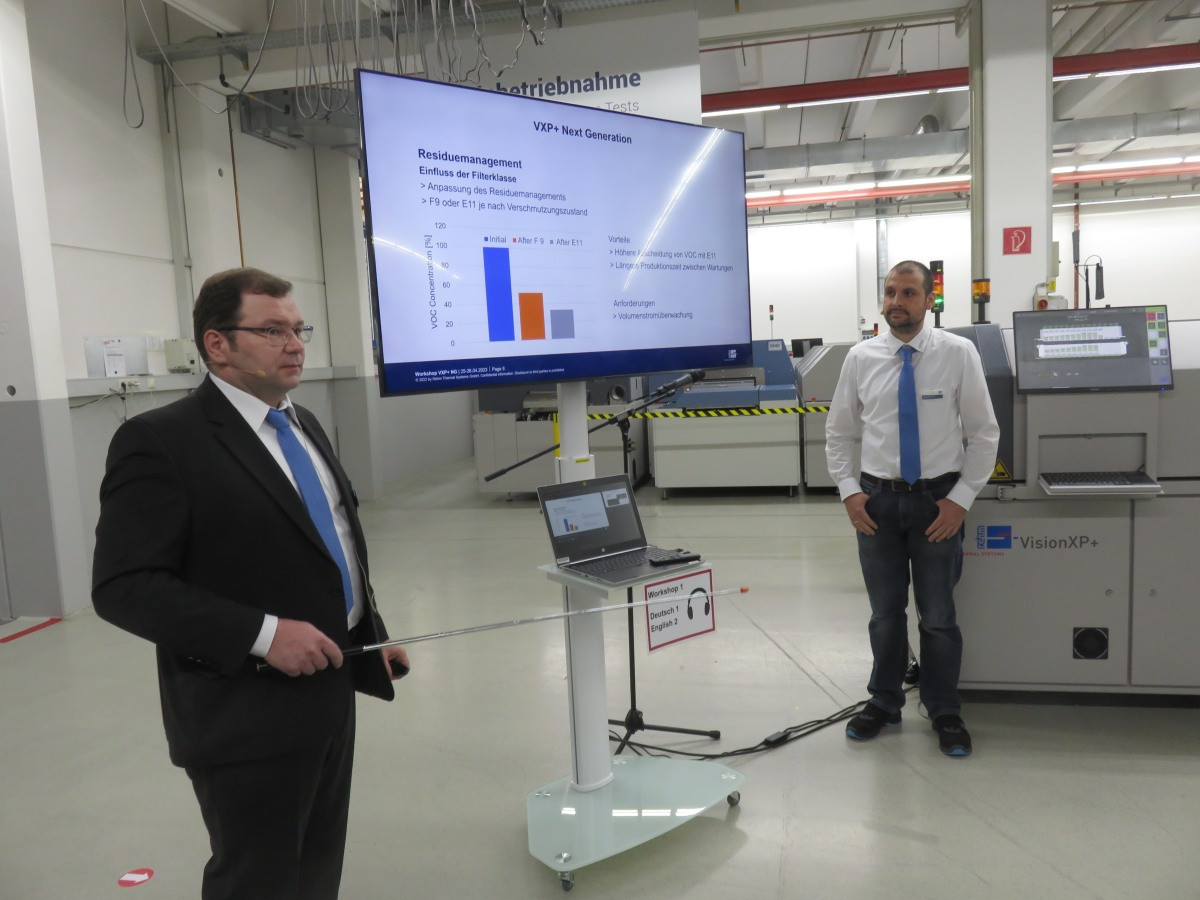 Dr. Paul Wild (l.) during his presentationProf.Dr. Aylin Bicakci, Kiel University of Applied Sciences, informed about current trends and future challenges of power modules. In doing so, she discussed the differences between the alternative assembly options of classic (chip on DCB/ceramic) and DOL (chip on leadframe). With DOL, an additional geometric adjustment is necessary. With a copper thickness of 1mm, the chip temperature can be reduced by 25K with DOL.
Dr. Paul Wild (l.) during his presentationProf.Dr. Aylin Bicakci, Kiel University of Applied Sciences, informed about current trends and future challenges of power modules. In doing so, she discussed the differences between the alternative assembly options of classic (chip on DCB/ceramic) and DOL (chip on leadframe). With DOL, an additional geometric adjustment is necessary. With a copper thickness of 1mm, the chip temperature can be reduced by 25K with DOL.
After Raphael Gehrmann, Rehm Thermal Systems, had provided information about the reasons for this, such as the upcoming sustainability reporting obligation and the history of Rehm's environmental management system, he showed that Rehm is already on the way toCO2-neutral production. Based on the three scopes forCO2 neutrality, he discussed the company'sCO2 balance. Many energy-saving opportunities have already been realized for the company's own products. There are still more. Raphael Gehrmann listed the energy-saving projects and noted that in future, only green electricity andCO2-neutral nitrogen will be purchased for the Blaubeuren site in addition to the electricity generated in-house. Michael Hanke commented on the contribution toCO2 neutrality with the words: "We are Swabians. We don't buy certificates. We can do it."
The following day, Markus Scheid, Scheid IT, discussed the connectivity communication interfaces in SMT production. He first outlined the communication paths that extend from the human-machine level as a basis via the MES system to the ERP system. The IPC-HERMES-9852 standard now exists for communication within the SMT line (between the machines) and the IPC-CFX-2591 standard for connections to higher-level systems. The IPC-HERMES-9852 standard makes it possible to pass PCB-related data from machine to machine via an open protocol. Until now, the SMEMA standard, which transmits less information, was used at line level. Machines that only support this standard can be integrated using a SMEMA Hermes Bridge in order to take advantage of the HERMES benefits.
Ronny Witzgall, SMA Solar Technology, presented a practical example of the IPC-CFX/HERMES standards in the form of a video showing the painting of large-format PCBs with the SMA painting system. The communication architecture there comprises the line, MES and ERP system levels. It is currently being further developed with the aim of implementing an Enterprise Service Bus by 2024. Ronny Witzgall listed what is desirable and what should not be done.
Gianfranco Sinistra, Rehm Thermal Systems, provided information on innovative line concepts for coating applications based on the history of coating printed circuit boards. Today, it is possible to automate parts, i.e. individual process steps, as well as up to 100% of the line, including AOI and material supply. With the Rehm ViCON Connect software, it is possible to network the systems so that you have everything in view at all times and can monitor and control the processes.
Thomas Mückl, Zollner, spoke about AI applications in electronics production. He emphasized: "If you don't have a lot of data, you don't need to start with AI." One problem is that the AOI detects 93% pseudo defects and 7% real defects, while manual inspection has a defect slippage of 4-5%. This can be reduced to around 2% using AI. AI can also be used to predict production data, among other things. To summarize his AI experience and advice on the introduction of AI applications, he said that you have to allow time, because the AI has to be retrained, among other things. The AI still needs a personal coach to look after the model. The AI also needs a management sponsor, infrastructure and specialists. And the expectation that AI is a jack of all trades must be dispelled.
The two keynote speeches were the highlight of the lecture series
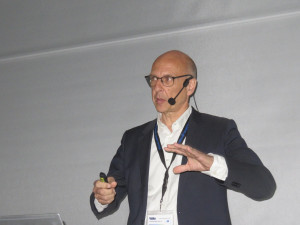 Prof. Dr. Christian Berg, Club of RomeOn thefirst day, Prof. Dr. Christian Berg from the 'Club of Rome' organization spoke about sustainability as a driver of innovation and optimization. We are living in a time of exponential growth in many areas combined with the risk of exceeding critical limits. He emphasized not only the explosive nature of climate change and the importance of ecological and social sustainability, but also the challenge of balancing the necessary investments with the economic benefits. This made the win-win situation from which both sides benefit - sustainability and economic growth - all the more clear during the presentation. This is because all stakeholders benefit from decarbonization measures, the circular economy and environmental regulations.
Prof. Dr. Christian Berg, Club of RomeOn thefirst day, Prof. Dr. Christian Berg from the 'Club of Rome' organization spoke about sustainability as a driver of innovation and optimization. We are living in a time of exponential growth in many areas combined with the risk of exceeding critical limits. He emphasized not only the explosive nature of climate change and the importance of ecological and social sustainability, but also the challenge of balancing the necessary investments with the economic benefits. This made the win-win situation from which both sides benefit - sustainability and economic growth - all the more clear during the presentation. This is because all stakeholders benefit from decarbonization measures, the circular economy and environmental regulations.
On the second day, Prof. Dr. Yasmin Mei-Yee Weiß, supervisory board member, start-up founder and professor at Nuremberg Institute of Technology, spoke about the 'future hot skills' and the mindset of the future that are essential for success in the digital age. In her presentation, she outlined a fundamental transformation of the world of work in the face of increasingly diverse, international teams, automated processes and new technologies such as artificial intelligence. The focus was on the importance of enduring meta-skills such as the ability to learn, resilience, empathy and communication skills - and the creation of a new, complementary intelligence based on collaboration between humans and AI. She said: "I hope you see a great opportunity in the future."
Intelligent processes up close - workshops and live demonstrations
Impressions of the workshops and live demonstrations
The workshops and live demonstrations spread throughout the building were all about direct exchange. They invited visitors to experience intelligent processes at first hand. Rehm had installed and prepared systems for this purpose at four different stations. The workshops focused on soldering and coating processes. Dr. Paul Wild presented new concepts for a stable and energy-efficient soldering process and Gianfranco Sinistra and Markus Scheid from Rehm and Scheid IT spoke about smart line concepts in the field of conformal coating. On the Rehm side, Jan Schacher and Nico Fahrner also demonstrated contact soldering with automated loading and condensation soldering under vacuum.
Numerous info points on various products as well as an informative exhibition with exhibits from partner companies and guided company tours rounded off the extensive program of the Rehm Technology Days 2023.
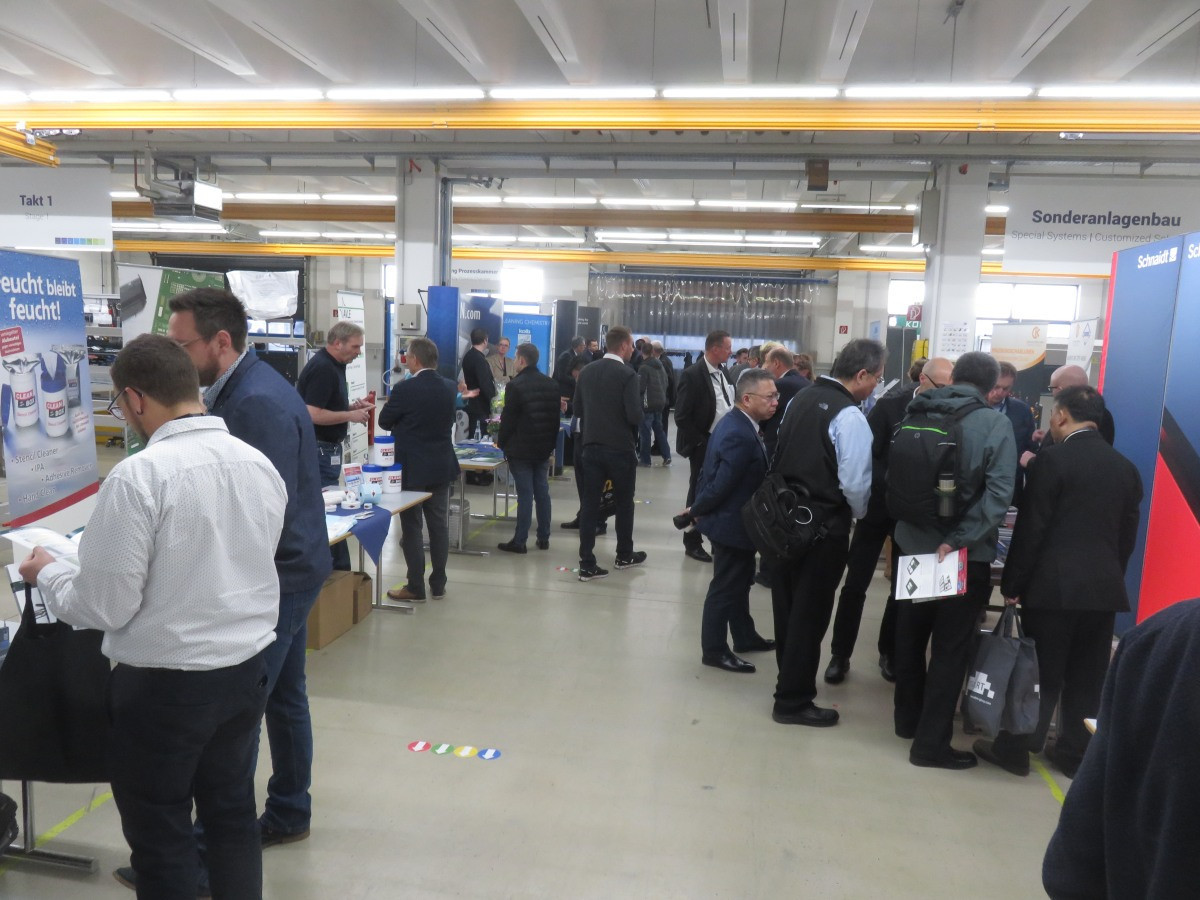 The exhibition area aroused great interest
The exhibition area aroused great interest
This is also part of sustainability: art for a good cause
Whether it was 'smART automation', 'being pART of connectivity', 'ARTificial intelligence or the heARTbeat of technology' - the Rehm Technology Days had no shortage of allegories on the subject of art and artificial intelligence. Numerous paintings, renderings and graffiti were created during the preparations for the event in a collaboration between human creativity and AI. The auction of selected pieces during the festive evening event proved that there was more to it than just beautiful appearances. Around 800 guests bid to win one of the unique pieces for themselves - and all for a good cause. In the end, the proceeds amounted to several thousand euros, which will now go to the Förderkreis für tumor- und leukämiekranke Kinder Ulm e. V. and the Urspring School, a recognized children's and youth welfare facility in Urspring, Baden-Württemberg.

